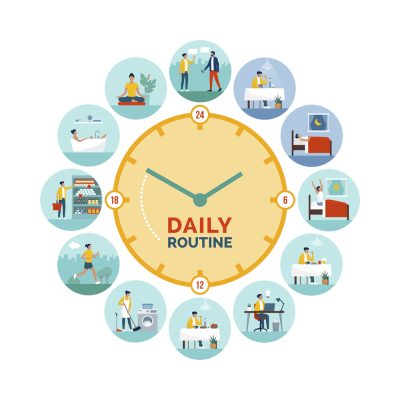 Alison Hartigan
Alison Hartigan
Alison brings the biopsychosocial occupational therapy approach and her lived experience of military and family life, neurodiversity and working overseas to support clients towards enjoyment and ease in their lives. Occupation is activity that passes the time in context (eg cooking a meal with family) – and can include sleep, self care, work, play, leisure and many other activities of daily living.
About Me:
As an occupational therapist, mum and veteran, Alison is passionate about working with people towards their goals using a biopsychosocial (whole person) approach. Alison finds it to be a privilege to walk alongside clients, supporting them with warmth and compassion to overcome barriers to participate more fully in life – with more ease and satisfaction. Alison is committed to supporting people towards improved well-being through occupational performance in their personal, domestic and community activities of daily living (ADLs), and management of energy, fatigue, pain and sensory-emotional regulation.
Alison brings her experience from previous roles in people leadership and management and massage therapy to her occupational therapy practice. In addition, Alison brings experience of working overseas and language teaching qualifications to support clients with a range of cultural and linguistic backgrounds.
At the Belconnen Specialist Centre, Alison will provide in-clinic and telehealth appointments for adults with physical, executive function, sensory and emotional barriers to participation in daily occupations.
For more information, please visit her website: www.verdanttherapies.com.au
Memberships:
AHPRA registered Occupational Therapist
Member of Occupational Therapy Australia
Mental Health Occupational Therapist registered with Better Access to Mental Health – Medicare Benefits Schedule
Member of AusPATH (Australian Professional Association for Trans Health)
Member of IASP (International Association for the Study of Pain)
Qualifications:
Master of Occupational Therapy
Graduate Diploma in Mental Health
Graduate Diploma in Education
CERT IV Soft Tissue Therapies
Formal training includes (but not limited to):
Sensory profile assessment and sensory-emotional regulation interventions
Activities of Daily living/Needs and Functional Capacity Assessments
Acceptance Commitment Therapy
Focussed Acceptance Commitment Therapy
Cognitive Behaviour Therapy
Pain Reprocessing Therapy and pain management across the lifespan
Motivational Interviewing
Self management strategies – executive function, health management (e.g. fatigue, energy, pain, focus and alertness, sleep), time management, forming and developing new habits, sensory/emotional regulation (dampening neurological arousal and improving satisfaction), environmental adjustment strategies, activities of daily living, well-being.
Tai Chi in clinical settings training – may be included as part of mindfulness and movement strategies.
What do occupational therapists do?
Occupational therapists (OTs) are qualified health professionals, trained to assist people to overcome limitations caused by injury or illness, psychological or emotional difficulties, developmental delay or the effects of ageing. They assist people seeking change to move from dependence to independence, maximising their personal productivity, well-being and quality of life.
Occupational therapists work with:
Regardless of the area, occupational therapists work with people to enable effective participation in the chosen occupations of everyday life, including:
- Activities of daily living: Showering, dressing, grooming and eating
- Household and community functioning: Home maintenance, driving, budgeting, shopping and community mobility
- Education: Activities which allow a person to participate effectively in a learning environment
- Leisure and play: Reading, knitting and playing sport
- Social participation: Interacting positively with others in the community
- Work: Participating in employment and volunteer activities
 Occupational therapists also assess and recommend assistive technology/environmental modifications that assist individuals to engage in the occupations of everyday life.
Occupational therapists also assess and recommend assistive technology/environmental modifications that assist individuals to engage in the occupations of everyday life.
Occupational therapists working in mental health help people to achieve the everyday activities that people engage in and find meaningful. They draw on a range of psychological and occupational therapy strategies to help people understand and cope with their daily function, productivity and capacity through the prescription of graded tasks and activities.
Occupational therapists in mental health use individual and group programs/activities to enhance independence in everyday activities. An occupational therapist may help to develop coping strategies for people overcoming their mental health issues or improving confidence and self esteem in social situations.
Occupational therapists assist individuals to:
- Develop skills to live more independently
- Manage with stress and emotions
- Link in with the community
- Cope with grief and loss
- Manage self esteem
- Develop communication skills
- Structure daily life
- Manage Pain
- Manage fatigue and energy
- Manage sleep
- Learn strategies for sensory /emotional regulation – dampening neurological arousal
- Improve functional capacity
- Manage or modify their interactions with their environment
For more information, please visit Alison’s website: www.verdanttherapies.com.au
